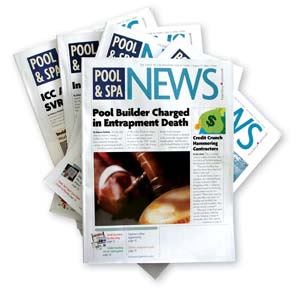Due to the Latham reorganization plan reported last week, most current stockholders will lose their interest in the company.
Those include Covington, La.-based distributor PoolCorp, which owns 37-1/2-percent of the company. This came as a result of a 2004 merger, when Latham received fellow vinyl-liner maker Fort Wayne Pools from PoolCorp in exchange for stock.
Once the arrangement is finalized, Latham’s senior lenders will own the company. PoolCorp President/CEO Manuel Perez de la Mesa said that, despite this reality, stockholders unanimously approved the reorganization plan.
“It was the right thing to do for the company,” Perez de la Mesa said. “It’s in Latham’s best interest to have a much lower level of debt so it can operate with a lot more flexibility and be more successful over time, even if it means that you lose your equity value.”
Perez de la Mesa added that during last year’s third quarter, PoolCorp reported its Latham investment value as zero.
Other stockholders included Boca Raton, Fla.-based private-equity firm Brockway Moran & Partners, which also owned 37-1/2-percent. Another 4 percent is owned by Apollo Investment Corp., and the rest is held by officers, employees and former employees of Latham. Most or all of the manufacturer’s subordinated lenders will go unpaid.
Perez de la Mesa observed that, like fiberglass-pool manufacturers, Latham and other vinyl-liner pool producers are vulnerable. “Those whose business is weighted heaviest in new construction are the ones that are affected the most,” he said.
But he characterized Latham as well-positioned. “Latham is still profitable before interest and taxes. But given the current level of profitability, the current level of debt was too high. So it needed to restructure. Now it will have a very manageable level of debt. They’ll continue being profitable and, as the industry recovers in three to five years, they’ll do very well.”




